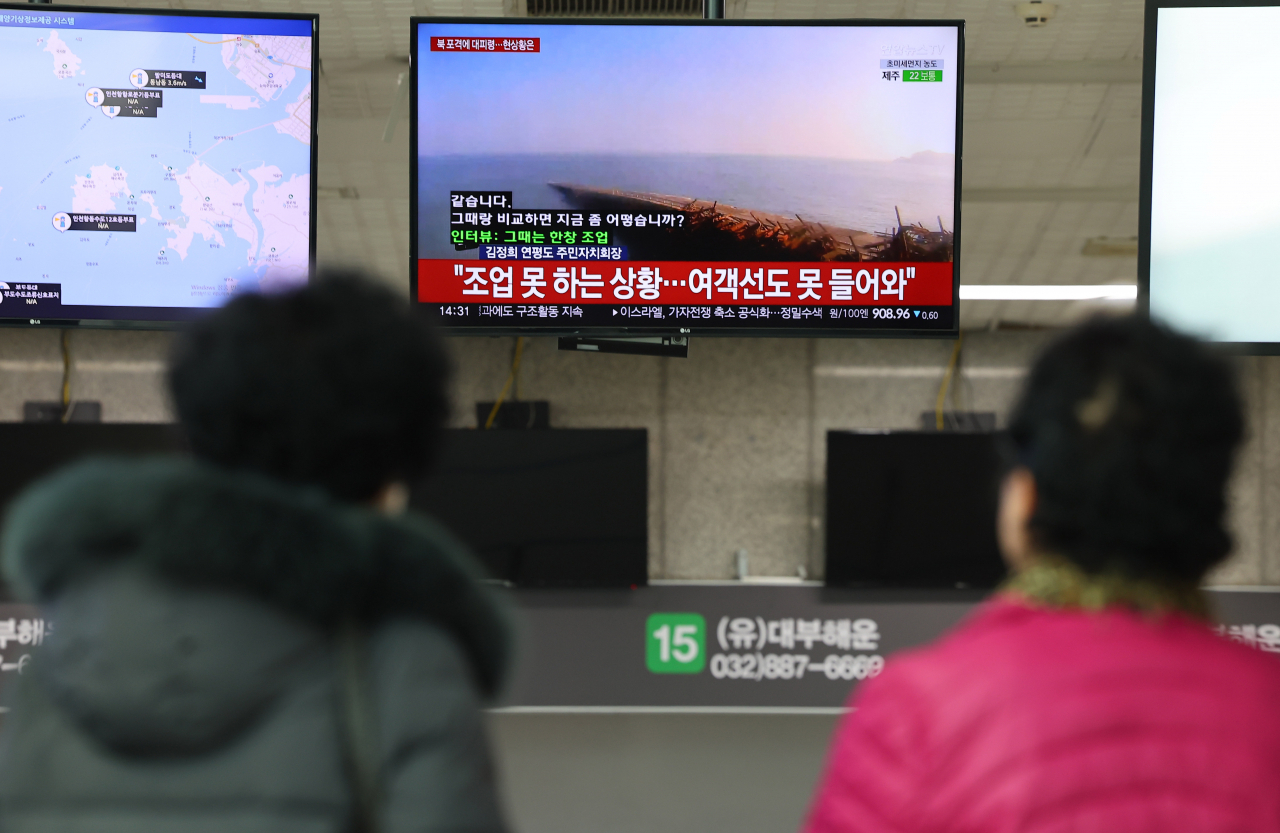 |
Passengers watch the news on North Korea's latest artillery provocation at a ferry terminal in Incheon, 27 kilometers west of Seoul, on Friday. (Yonhap) |
North Korea fired some 60 artillery shells into waters off its western coast Saturday, South Korea's military said, conducting live-fire drills near the tensely guarded western border for the second consecutive day.
The Joint Chiefs of Staff said it detected the artillery firings in the North's southwestern coastal areas for an hour from 4 p.m.
The shells splashed into the maritime buffer zone north of the Northern Limit Line, the de facto maritime border in the Yellow Sea, the JCS said. The buffer zone was set under an inter-Korean military accord signed on Sept. 19, 2018, to reduce border tensions.
"Unlike yesterday, North Korea fired toward the sides and northern inland areas. It was not necessary to respond like yesterday, since all the shots were fired toward its own territory," a senior JCS official said.
On Friday, the North fired some 200 artillery shells near two South Korean western border islands of Yeonpyeong and Baengnyeong, prompting islanders to take shelter and the South Korean military to stage live-fire drills in response.
The South Korean military warned against the North's latest saber-rattling after it scrapped a 2018 inter-Korean military accord in November, which set up buffer zones in land, sea and air, and banned live-fire drills near the border area.
"We strongly warn against North Korea's continued artillery firings in the maritime buffer zone, which threatens peace on the Korean Peninsula and escalates tension, and urge it to immediately stop," the JCS said in a text message sent to reporters.
If the North continues to threaten South Koreans, the JCS said it will take action without specifying.
The South Korean military does not plan to conduct a live-fire military exercise in response Saturday, according to military officials.
On Friday, the South Korean military fired some 400 rounds into the maritime buffer zone, double the amount fired by the North, in response to the North's drills.
It was the South's first artillery firing into waters near the NLL, since the military tension reduction accord was signed in September 2018.
Hours after the firings, the North Korean military said the drill was "a sort of natural countermeasure" against recent artillery firings by South Korea and vowed to demonstrate "tough counteraction on an unprecedented level."
Tension remains high after North Korean leader Kim Jong-un defined inter-Korean ties as relations "between two states hostile to each other" and called for stepped-up preparations to "suppress the whole territory of South Korea" at a year-end ruling party meeting. (Yonhap)







![[Today’s K-pop] Blackpink’s Jennie, Lisa invited to Coachella as solo acts](http://res.heraldm.com/phpwas/restmb_idxmake.php?idx=644&simg=/content/image/2024/11/21/20241121050099_0.jpg)